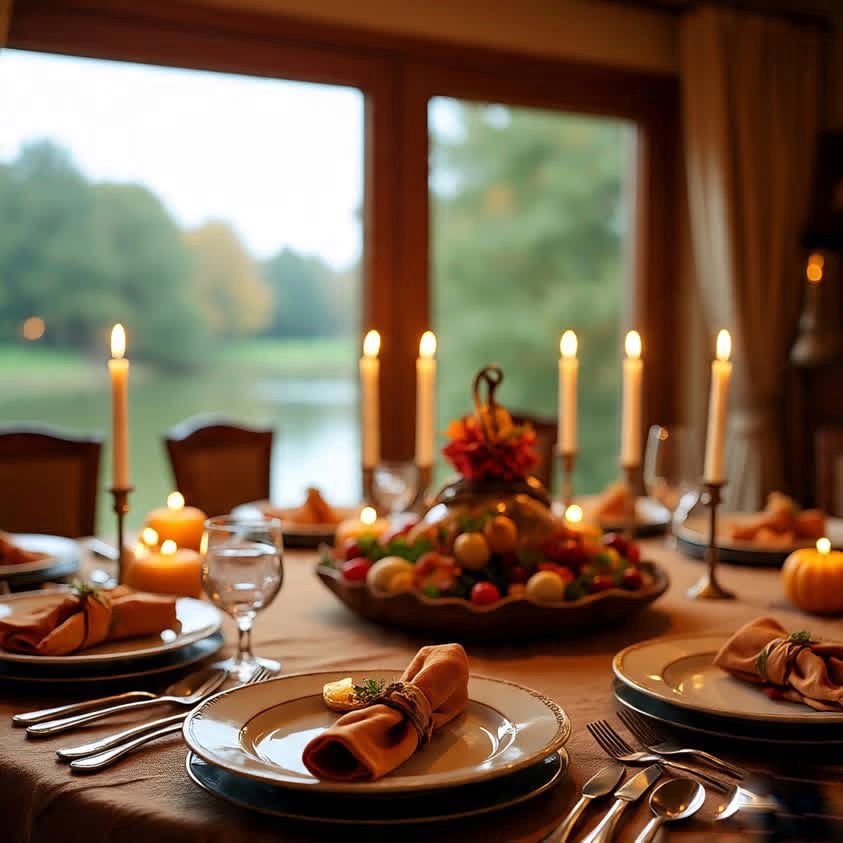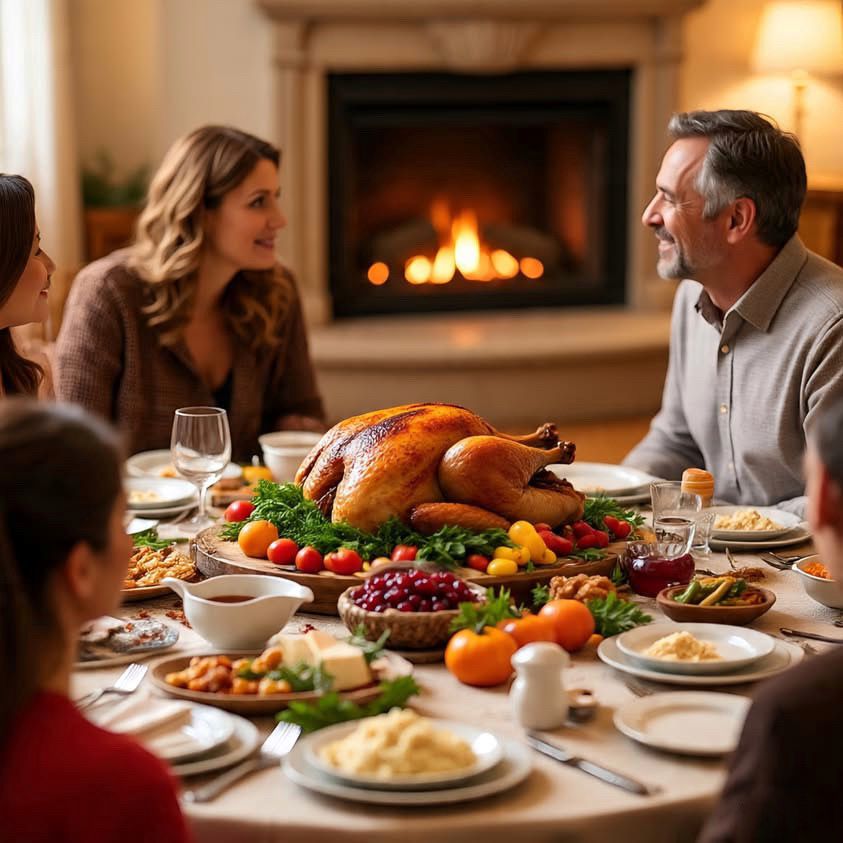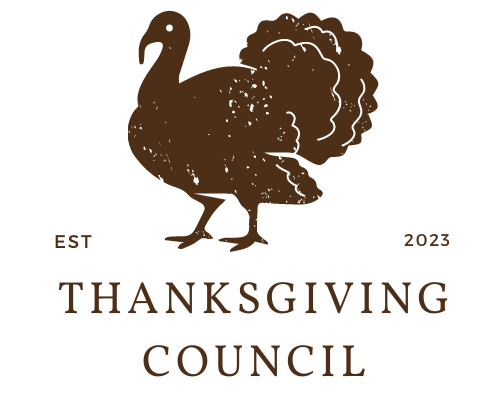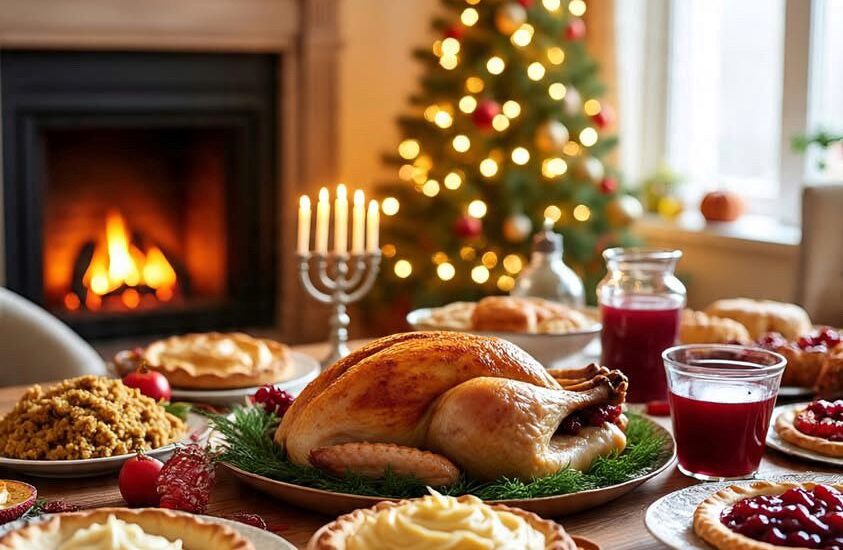When I think about Thanksgiving, my mind immediately goes to that crowded dining room table at my grandmother’s house, where we would all hold hands while my uncle said grace. It never mattered if some of us were fidgeting or if the food was getting cold. That moment of prayer before the meal felt like the anchor that held everything together. But have you ever stopped to wonder why we do that? Why does a national holiday so deeply rooted in American culture carry such strong religious undertones?
The connection between Thanksgiving and religion runs deeper than most people realize. Sure, we all learned about the Pilgrims in elementary school, but the religious motivations behind that first harvest celebration in 1621 often get lost in the narrative of friendly meals with Native Americans. The Pilgrims were not just settlers looking for new land. They were religious separatists who had fled England to practice their faith freely. Their entire journey to the New World was an act of religious conviction, and when they survived that brutal first winter and saw a successful harvest, their instinct was to thank God.
I remember my history teacher in high school trying to explain this, and honestly, most of us were not paying much attention. We were more interested in the menu for our upcoming Thanksgiving break. But looking back now, understanding that religious foundation actually makes the holiday more meaningful. These were people who attributed their survival directly to divine providence. They did not see their harvest as simply good luck or agricultural skill. They saw it as an answer to prayer, a sign that their faith had carried them through unimaginable hardship.

The tradition of setting aside days for religious thanksgiving was not new to the Pilgrims either. Days of thanksgiving were common in the Puritan tradition, declared by church leaders or government officials to mark special occasions or deliverances. These were not annual events at first. They were spontaneous expressions of gratitude for specific blessings like military victories, good harvests, or recovery from illness. Prayer and fasting were central to these observances. People would spend the day in church, reflecting on their blessings and asking for continued divine favor.
Fast forward a few centuries, and we see how this religious practice became woven into the fabric of American identity. When Abraham Lincoln proclaimed Thanksgiving a national holiday in 1863, he did so in explicitly religious terms. His proclamation called on Americans to set apart the last Thursday of November “as a day of Thanksgiving and Praise to our beneficent Father who dwelleth in the Heavens.” This was during the Civil War, mind you. The country was tearing itself apart, and Lincoln saw this day of national thanksgiving as a way to unite people under a common act of worship and gratitude.
My own family’s Thanksgiving traditions still carry echoes of these religious roots, even though we are far more secular than the Pilgrims ever were. We still say grace. We still go around the table and share what we are thankful for. Sometimes my cousin will mention her new car or my brother will talk about his promotion at work, but other times the gratitude feels more profound. Last year my aunt talked about making it through cancer treatment, and there was not a dry eye at the table. In those moments, whether you are religious or not, you feel connected to something larger than yourself.

The interesting thing about Thanksgiving is how it has managed to remain culturally significant even as America has become more religiously diverse. Walk into any American home on Thanksgiving, and you might find a family that has never set foot in a church, yet they still pause before the meal. They might not call it grace. They might not direct their thanks toward any particular deity. But that moment of reflection and gratitude remains. It is like the religious DNA of the holiday has persisted even as the explicit religious practice has faded for many families.
Of course, this raises questions about what Thanksgiving means in modern America. Can a holiday maintain its religious significance in an increasingly secular society? Should it even try? I do not have definitive answers to these questions, but I think the beauty of Thanksgiving lies in its flexibility. For my deeply religious neighbors, it remains a holy day of thanking God for blessings. For my agnostic friends, it is a day to reflect on good fortune and express appreciation for the people in their lives. Both approaches honor the spirit of the original harvest celebration, even if they express it differently.
Reference
Bradford, W. (1856). Of Plymouth Plantation, 1620-1647. Massachusetts Historical Society. Available through Library of Congress digital collections.
Winslow, E. (1622). Mourt’s Relation: A journal of the Pilgrims at Plymouth. John Bellamie. Reprinted by the Massachusetts Historical Society.
Library of Congress. (n.d.). Thanksgiving: An American holiday. American Memory Collection. https://www.loc.gov

